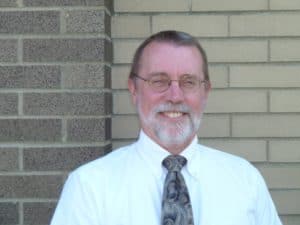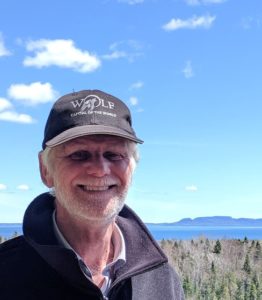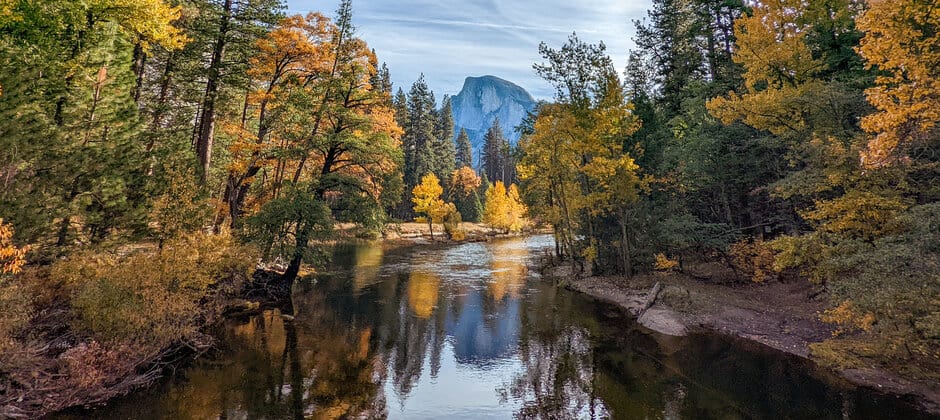Share this article
2022 TWS Elections: Vice presidential candidates
The ballot for The Wildlife Society’s 2022 elections includes nominees for the position of vice president.
Additional nominees may be submitted by any voting member in good standing, if supported in writing by 5% of the voting membership. The deadline for additional nominations is May 15.
Electronic ballots will be sent May 31 to all members with an email address. Members without an email address will receive a paper ballot in the mail. Voting will close June 30. Mailed paper ballots must be postmarked on or before June 30. Newly elected council members are scheduled to be installed at the 29th Annual Conference in Spokane, Washington Nov. 6-10.
The candidates’ statements expressing their vision for The Wildlife Society and their interest in running for this council position are below.
Nominees for Vice President
 Paul R. Johansen
Paul R. Johansen
In today’s changing society, it is imperative the wildlife profession be prepared to address a wide range of issues and concerns (e.g., agency relevancy and effective public engagement; growing anti-management sentiment among various segments of the public; threats undermining the North American Model of Wildlife Conservation; matters relating to diversity, equity and inclusion within the profession; recruitment, retention and reactivation of hunters, anglers and other wildlife-associated recreationalists; impacts of climate change and accelerated habitat degradation; successional planning for agencies and institutions; meeting the needs of established wildlife professionals, early career professionals and students). The Wildlife Society is well positioned to assist the wildlife profession, as we attempt to address many of these challenges. By adopting an effective and business-like approach to management, The Wildlife Society continues to improve its scientific and technical publications, networking and information dissemination capabilities, wildlife policy activities and other programs designed to support its membership in all areas of wildlife conservation, research and management. I fully endorse these initiatives, recognize their importance to our profession and pledge to explore additional means for improving organizational effectiveness and program delivery to our membership.
My vision for The Wildlife Society is straight forward. The Wildlife Society should continue to be the preeminent organization that welcomes and supports all wildlife professionals and students. To be effective, we must remain relevant to both our membership and the broader elements of society.
I am proud to be a member of The Wildlife Society. Through my tenure on Council, I have seen our leadership consistently demonstrate commitment to the wildlife professionals we serve and the natural resources we value. Should I be elected to the office of Vice President of The Wildlife Society, I will attempt to continue this fine tradition and serve to the best of my ability.
See complete biographical sketch here.
 Arthur R. Rodgers
Arthur R. Rodgers
Science, DEI, and support to students and new professionals are the three areas that I will strengthen in TWS. TWS has been the preeminent science-based organization for wildlife management in North America for more than 80 years. There is little doubt that we must develop science-based solutions and policies to mitigate the threats to our natural resources, such as climate change. We must be proactive, not just reactive. As a government research scientist following that strategy, I have been successful in getting my science into policy and legislation. I will bring that knowledge and experience to ensure TWS is recognized by policymakers as an important ally and source of science-based solutions.
If we are to succeed, we must strengthen our efforts to promote DEI in TWS. All voices must be heard. We must increase our diversity efforts and move forward on inclusion to ensure those who are, for example, physically or socio-economically disadvantaged can participate. We need our conferences and other TWS events to be fully accessible. We also need to recognize the socio-economic challenges of students and new professionals; e.g., limited financial resources and young families. I will work with our student and new members and TWS staff to increase and improve opportunities for those who may be disadvantaged.
Following two terms on Council, I have a strong understanding of the administrative and financial accountability of those who serve, as well as TWS headquarters staff – they are all passionate, incredibly motivated, and skilled. To ensure our future, TWS needs to support our members and grow our membership, nationally and internationally, by providing leadership for science-based wildlife management, increasing communication and networking through our publications and conferences and by providing an inclusive environment for all who share our desire to make the world a better place.
Header Image: Credit: Matthew Dillon








